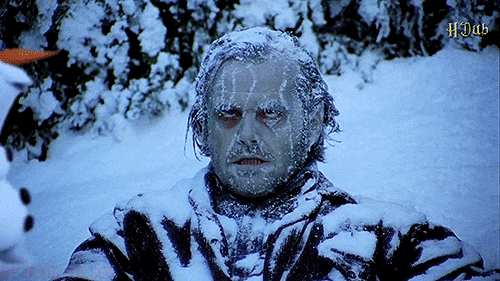The effects of cold weather on health, how the human body responds to low temperatures and the effects of winter. Your health can be affected for good or ill depending on your response to the different aspects of winter.

Cold temperatures place physiological stresses on the body, the more healthy and fit you are, the more easily your body can cope with these stresses. Dressing properly is the key to being healthy in a cold climate. Avoiding undue stresses particularly if you are not seasonally acclimatized to the cold is also important, especially in the very old, the very young and those with an underlying health condition.
The elderly, the very young and those with long term illnesses should have the home heated to at least 18C (64F).
Eat well or lose weight - One of the best ways to stay warm in a cold climate is by the use of the "inner furnace" to generate heat from within. While salad might be just the thing you want in the warmth of summer, come the colder months of the year, it's hearty stews, soups and comfort food that just doesn't do the same thing for your palate in warmer weather. This is your body's way of telling you it needs more fuel to keep warm. If you can put up with constantly feeling cold, this is a possible way of losing weight.
Use layers to stay warm, - The layer principle of dressing should be used in cold weather, this doesn't mean simply lots of layers, but layers for particular purposes, a close fitting base layer to wick away sweat, especially if there is any physical exertion taking place, insulating mid layers and a looser fitting wind or waterproof outer layer. Insulation can be provided by a number of thinner layers rather than a single thick layer. This is a more effective way of staying warm as air (the real insulator) is trapped between the layers as well as within the layers.
It also results in less cumbersome dressing overall increasing mobility and is more flexible in that layers can be added or removed as conditions change. Zips, draw cords and fastenable cuffs all help to loosen up during exertion and fasten up again when resting or if it gets colder. clothing for extreme cold
Am I cold because I feel cold? - Perception is almost all. How cold you feel and how cold you are, are not as closely related as you may imagine. While uncontrollable shivering is under the influence of your subconscious and indicates a fall in the core temperature, how cold you feel is not a great indicator. Some people are able to tolerate the cold more than others largely on the basis of perceiving exactly the same sensations in a different way. You can train yourself to be less affected by the cold, more on acclimation and acclimatization here.
As people get older, they can become less perceptive of cold temperatures, another reason the elderly are more prone to becoming hypothermic, they just don't notice their falling body temperature.
Why do I want to pee when it's cold? - When you are cold your body reduces the circulation to the extremities and skin surface, a process called peripheral vasoconstriction (peripheral = at the edges, vaso = blood vessels) so concentrating a greater volume of blood in the body core. This increases the arterial blood pressure. The body's response is to try to reduce this pressure, the kidneys reduce the volume of circulating blood by removing water to the bladder to be lost as urine. This process is known as "cold diuresis".
On return to a warmer environment, circulation is restored to the periphery which reduces the volume circulating in the core, which triggers a thirst sensation so you drink, go outside in the cold again.. etc. etc.
In our next blog post - we will discuss the physical risks from the cold directly, what feeling cold all the time could really mean, disease risks associated with cold, and finally the benefits of the cold!
Stay tuned and stay Warm!

.jpg)